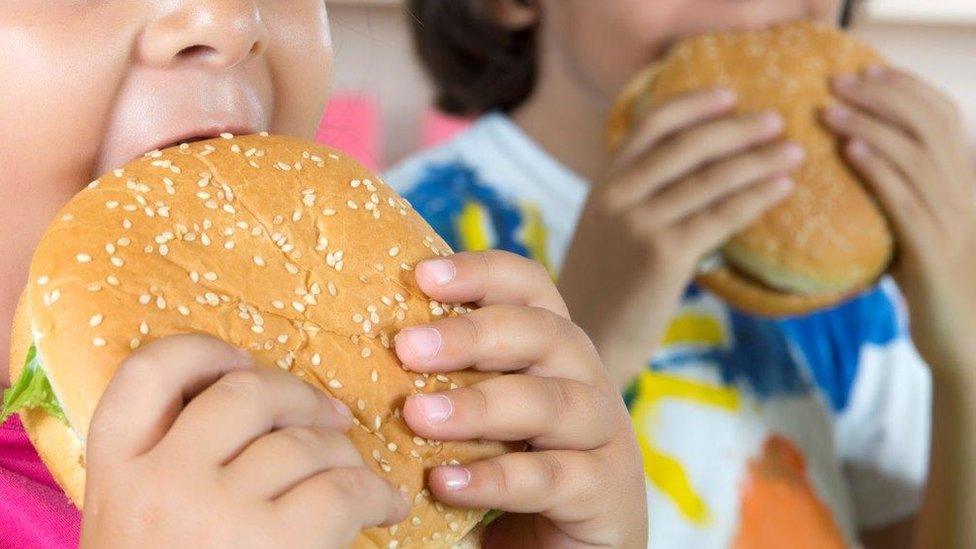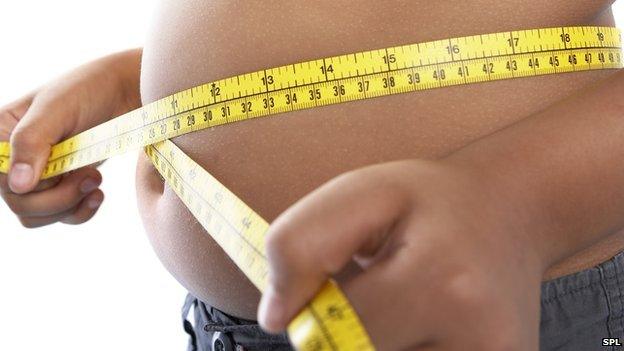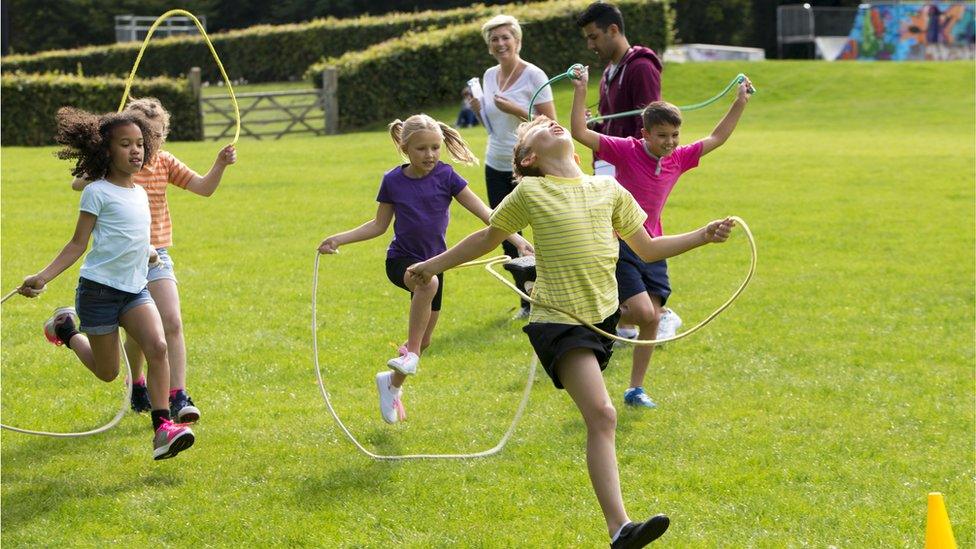Schools alone cannot fix childhood obesity, says Ofsted boss
- Published

Children need help to make better choices, says report
Schools are not a "silver bullet" to tackle childhood obesity, the head of Ofsted has said in a report.
A study of 60 schools found no link between schools' efforts to tackle obesity and pupils' weight.
Factors outside the gates make it impossible for schools "to have a direct and measurable impact on children's weight", said chief schools inspector, Amanda Spielman.
Even so, they still have a vital role to play in fighting obesity, she added.
Ofsted looked at the approaches of a carefully selected group of 60 primary schools across England, to compare schools where pupil obesity was higher than in similar schools, with those where pupil obesity was relatively low.
The report looked at the measures schools were taking to tackle obesity and promote healthy lifestyles among pupils and parents, but found "no pattern to suggest that any intervention was related to higher or lower obesity".
In her commentary to the report, Ms Spielman said: "There is a broader temptation to look to schools to do more than educate.
"When faced with a worrying trend that threatens children's futures, there is an understandable desire to find ways to turn the tide.
"However, there is a risk that by focusing on activities other than education, schools neither reduce weight, increase health nor teach children what they need to know.
"The more we expect schools to become a catch-all for all societal ills, the more we distract them from their core purpose."
Ms Spielman urged families, government, industry and the public sector to increase efforts to make food and drink healthier and to help children make better choices.
She said it was important to "recognise that schools cannot provide a silver bullet for all societal ills".
"Teachers and school leaders are already stretched; they should not be held responsible for an issue that requires concerted action across the board."
Instead, schools should focus on delivering a curriculum that gives children "a solid body of knowledge about healthy living and the skill to pursue it," said Ms Spielman.
The report says schools should ensure pupils:
learn about the body in PE and science and about healthy eating and cooking
get enough physical exercise, including lots of opportunities to get out of breath
gain skills for life like cooking, a sport or dancing
In addition, parents need regular updates about pupils' physical development.
One in three UK children is now overweight or obese by the age of 11.
The government wants all primary schools to introduce a daily "active mile" for children to ensure they do 60 minutes of activity per day.
And last month ministers updated the Childhood Obesity Plan, with a ban on sweets and fatty snacks being sold at supermarket checkouts, as well as tighter restrictions on junk food ads.

Learning a sport can nudge pupils towards a healthy lifestyle
Ali Oliver, chief executive of the Youth Sport Trust, said the report made clear the importance of physical education in schools.
"This report sends an important message about the opportunities schools must embrace, from introducing more physical activity in the school day to working more closely with parents," said Ms Oliver.
But the National Association of Head Teachers warned that the subject was being squeezed by funding cuts and excessive focus on exam results.
Geoff Barton, general secretary of the Association of School and College Leaders, said the union agreed that expectations of schools in terms of tackling childhood obesity must be realistic.
"Action is needed across society to find solutions to this complex and challenging issue," said Mr Barton.
- Published24 June 2018

- Published30 May 2018

- Published8 February 2018

- Published18 August 2016
